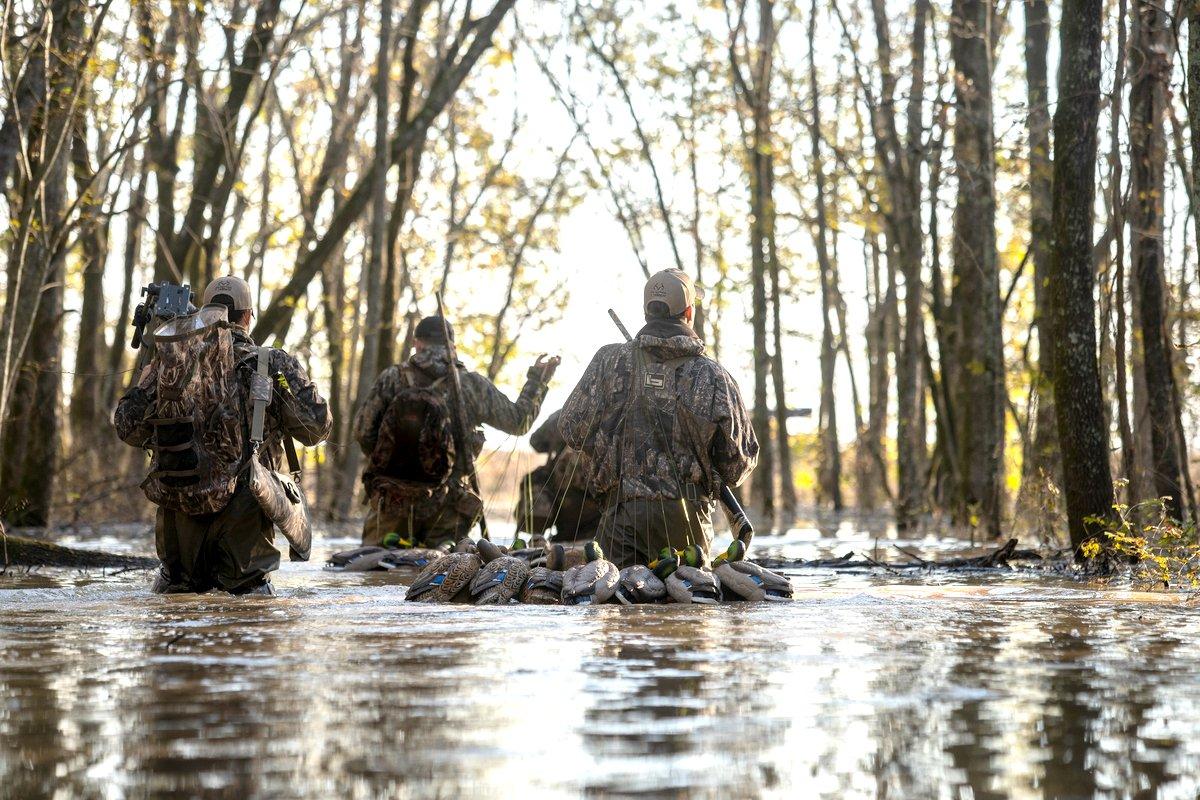Effort will boost waterfowler retention, recruitment and reactivation
A Delta Waterfowl initiative featuring an aggressive suite of programs aims to boost the number of waterfowl hunters in North America.
HunteR3 derives its name from Delta's position as The Duck Hunter's Organization and the wildlife-agency term R3, which stands for retention, recruitment and reactivation.
Baby Boomers are aging out of hunting participation, and they're not being replaced, said Joel Brice, vice president of waterfowl and hunter recruitment programs for Delta. That's a problem for duck hunters and, in turn, for waterfowl conservation. Delta's HunteR3 is the solution.
Delta has worked continuously on R3 efforts since introducing First Hunt in 2003. Bolstered by grants and membership support, HunteR3 marks a chance for Delta's hunter recruitment programs to have greater impact.
HunteR3 is in a unique position to reverse the hunter-numbers trend, given the enhanced resources, our expertise in R3 programming and our constant pursuit of innovative ideas, Brice said. Delta defends against all threats to the future of waterfowling, and declining hunter numbers is no exception.
Critical components of HunteR3 include:
First Hunt: Delta Waterfowl's First Hunt is the largest waterfowl hunter recruitment program in North America. Since the effort's inception, Delta's volunteer chapter leaders have introduced more than 72,000 people to duck and goose hunting. In 2018, chapters across the United States and Canada hosted 263 First Hunt events with 12,367 participants.
Delta intends to deliver more First Hunt events in 2019 and beyond. In addition, it hopes to hold a higher percentage of First Hunt events targeted toward young adults.
Defend the Hunt: Delta Waterfowl serves as the voice of the duck hunter throughout North America, defending against threats to duck hunting opportunities. Members and volunteers alert Delta's staff to issues that threaten waterfowling, and the group takes action — at the local, state, provincial or national level — to protect hunting. In addition, Delta works proactively with government agencies to promote sensible hunting regulations and increase access to public hunting lands, as access is critical to hunter retention.
University Hunting Program: The Delta Waterfowl University Hunting Program, which began in 2017, recognizes that increasing numbers of wildlife-management students come from non-hunting backgrounds. Those future wildlife professionals, who will use money from hunting license and permit sales to manage waterfowl, must understand the critical role hunting plays in conserving ducks and geese.
To introduce those students to waterfowl hunting, Delta is building partnerships with universities that offer wildlife-management degrees. The program has grown rapidly since holding five mentored hunts in 2018. At least 24 universities will participate during the 2019-'20 hunting season.
Great Lakes R3 Demonstration Facility: Delta is ramping up R3 programming at the Hunting Heritage and Conservation Center, the organization's facility in Turkey Point, Ontario. The HHCC will become a hub for innovative and experimental programs targeting R3.
Mentor Recognition Program: The group launched a Mentor Recognition Program in 2017 to increase awareness about the decline in waterfowl hunter numbers and the resulting effects of a diminishing voice. This program awards prizes and certificates to celebrate and recognize mentors who take new hunters afield. First-Duck Pins, a companion program sponsored by Realtree, awards a special pin and certificate to hunters who shoot their first duck or goose.
Click here for more Realtree waterfowl hunting content. And check us out on Facebook.







